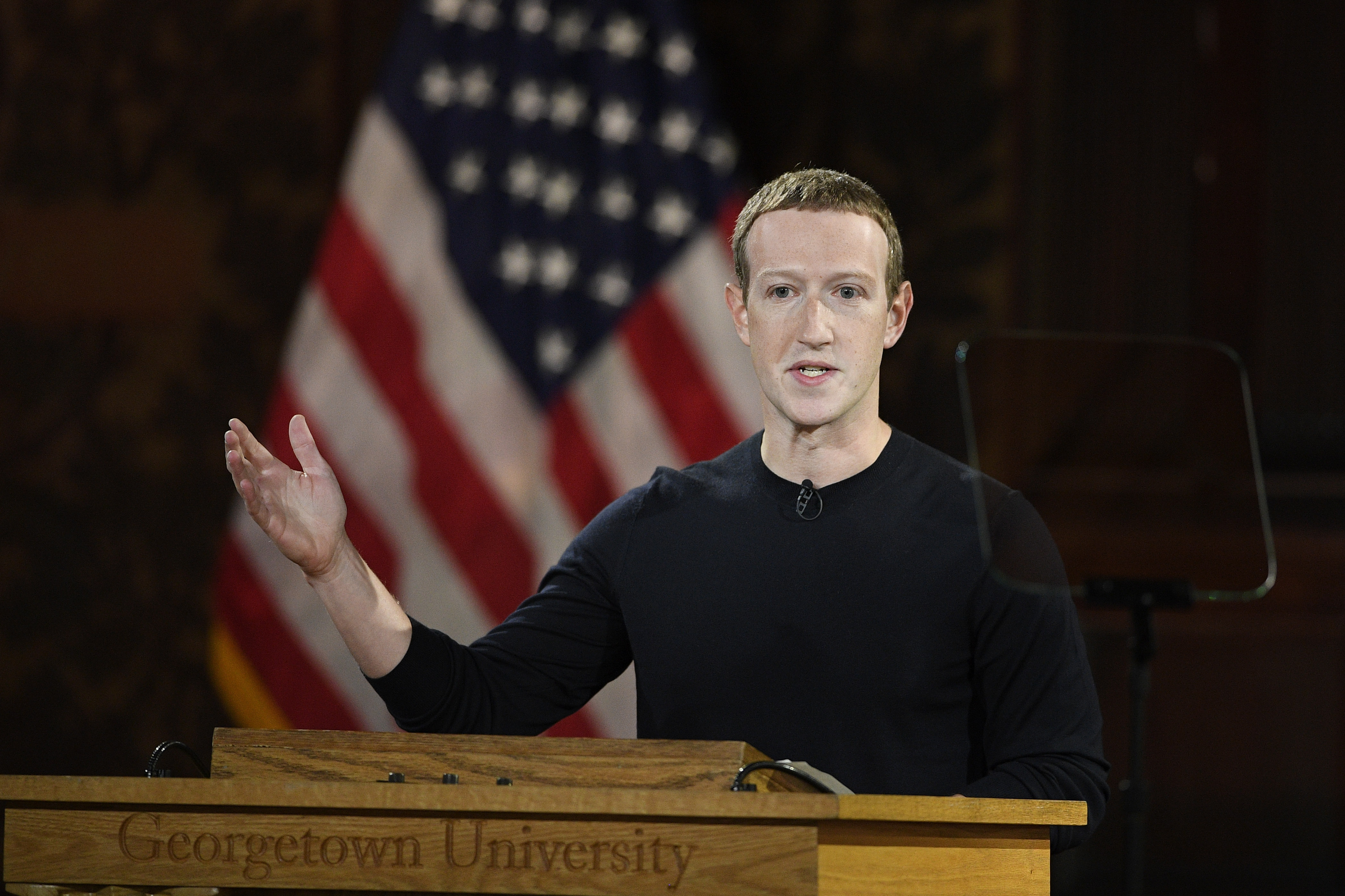Mark Zuckerberg Just Gave Every Politician a Green Light to Lie in Facebook Ads

Credit to Author: David Uberti| Date: Thu, 17 Oct 2019 21:10:28 +0000
Mark Zuckerberg is worried about the truth. But he thinks Facebook’s attempts to protect it could backfire.
"As a principle, in a democracy, I believe people should decide what’s credible,” Zuckerberg said Thursday. “Not tech companies."
In a speech to a packed auditorium of Georgetown University students, the Facebook co-founder attempted to rebrand his massive advertising company as a global beacon for free expression. He framed the current debate over political speech across the internet as an historic inflection point for civil rights. And he defended his company’s hands-off approach in that crucial moment — including its recent decision to allow politicians to lie in ads and other content.
“We don’t fact-check political ads. We don’t do this to help politicians, but because we think people should be able to say for themselves what politicians are saying,” he said. “For the same reason, if content is newsworthy, we also won’t take it down even if it otherwise would conflict with some of our standards.”
The speech came as 2020 candidates, namely President Donald Trump, have begun targeting Facebook users with a torrent of advertising, some of it with false or misleading claims. Political ads comprise a small portion of Facebook’s $60 billion ad machine, and Zuckerberg said on Thursday that he’s considered canning them entirely.
“From a business perspective, the controversy is certainly not worth the small part of our business they make up,” Zuckerberg said.
But banning them, he added, could favor politicians with better name recognition. What’s more, it wouldn’t be clear where to draw the line on ads about politics versus social issues.
“There are going to be issues any way you cut this,” Zuckerberg said. “And I believe that when it’s not absolutely clear what to do, we should err on the side of greater expression.”
READ: The Democrats unfriended and blocked Silicon Valley
That was a consistent refrain throughout the Silicon Valley executive’s 35-minute speech Thursday. Making vague references to “progress,” Zuckerberg argued that more speech is an inherent good for society and assailed critics that have lambasted the company’s approach to content moderation.
“In times of social tension, our impulse is often to pull back on free expression,” he said. “We want the progress that comes from free expression, but we don’t want the tension.”
The company is one of the world’s largest censors by nature of having 2.3 billion global users, banning or downranking content including hate speech and violence. But only Facebook really knows where Facebook draws the line.
Political ads have recently become a flashpoint in that debate. Last month, Facebook announced it had exempted politicians from third-party fact-checking, allowing them to put misinformation in ads. Soon after, the Trump campaign ran an ad falsely accusing former Vice President Joe Biden of corruption in Ukraine. Sen. Elizabeth Warren’s campaign subsequently ran its own spoof ads claiming Zuckerberg was endorsing Trump for reelection.
In a statement in response to Zuckerberg’s speech on Thursday, Biden campaign spokesperson Bill Russo tore into the company for prioritizing “lies and conspiracy theories” at the expense of other voices.
Zuckerberg’s “choice to cloak Facebook’s policy in a feigned concern for free expression demonstrates how unprepared his company is for this unique moment in our history and how little he has learned over the past few years,” Russo said.
Bernice King, daughter of Martin Luther King, Jr., also panned Zuckerberg’s speech after he made references to her father and other civil rights activists.
READ: Mark Zuckerberg thinks an Elizabeth Warren presidency could "suck for us"
“I'd like to help Facebook better understand the challenges #MLK faced from disinformation campaigns launched by politicians,” King tweeted. “These campaigns created an atmosphere for his assassination.
Lies aren’t new to political ads, but Facebook’s targeting allows campaigns to pinpoint voters to a much greater extent than TV and other types of media, which are more heavily regulated. The company doesn’t share how that technology works. And legislation to improve digital ad transparency has died in the Republican-controlled Senate.
Zuckerberg’s remarks Thursday came as Facebook faces federal and state inquiries into its business practices and increasing political pressure from both sides of the political aisle. The tech executive didn’t mention those complaints, instead framing Facebook’s libertarian position on speech as part of a larger geopolitical struggle.
“Until recently, the internet in almost every country outside of China has been defined by American platforms with strong free-expression values,” Zuckerberg said. “But there’s no guarantee that these values will win out.”
Cover: Facebook CEO Mark Zuckerberg speaks at Georgetown University, Thursday, Oct. 17, 2019, in Washington. (AP Photo/Nick Wass)
This article originally appeared on VICE US.